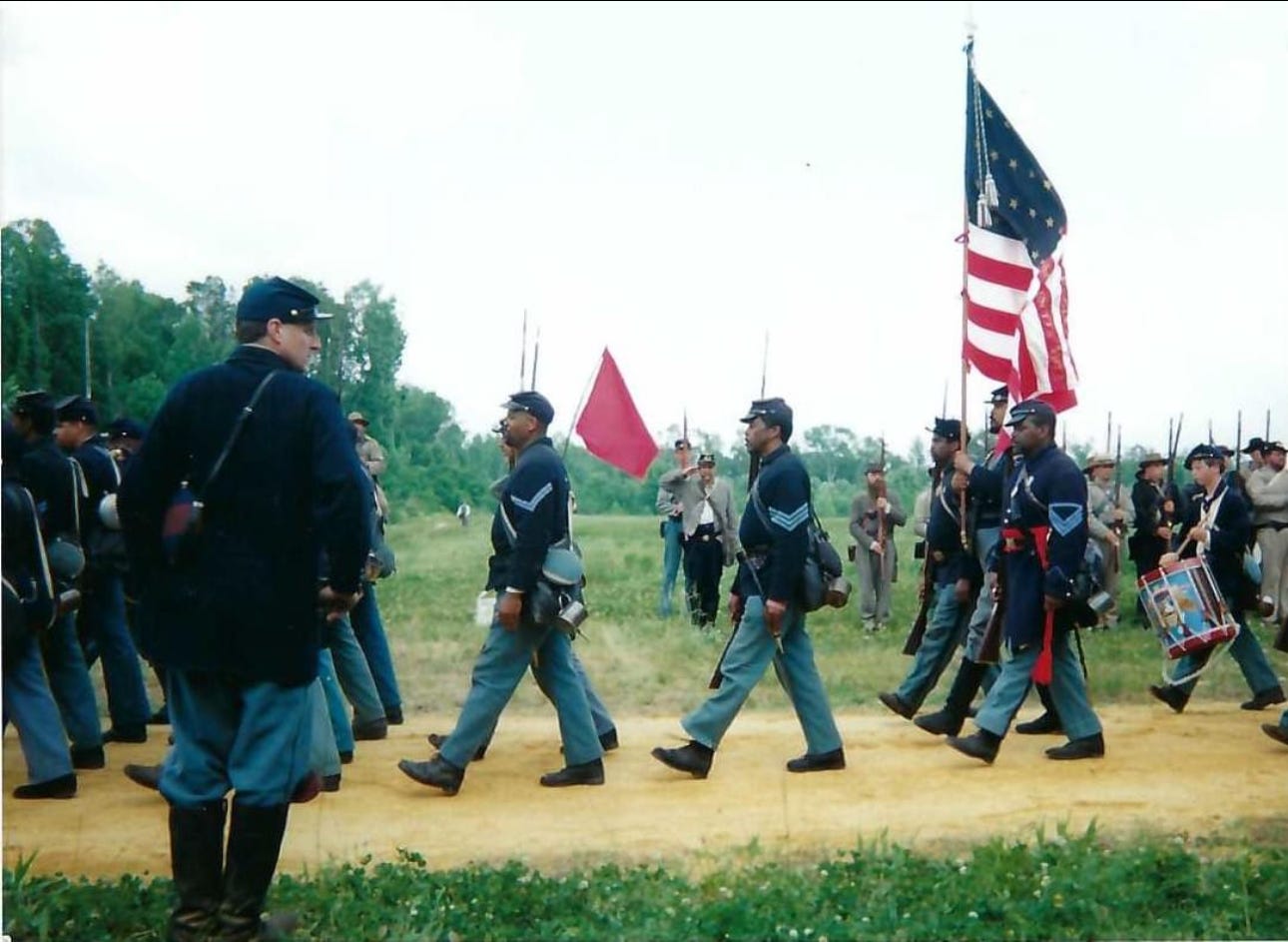The Battle of Wilson's Wharf "160th Anniversary"
~ A Crucial Stand by Black American Soldiers at Fort Pocahontas
Introduction
The Battle of Wilson's Wharf, also known as the Battle of Fort Pocahontas, was a significant engagement during the American Civil War. Fought on May 24, 1864, in Charles City County, Virginia, this battle highlighted the strategic and symbolic importance of black American soldiers in the Union Army. The engagement demonstrated their bravery and combat effectiveness, challenging pervasive racist notions and contributing to the broader struggle for equal opportunity.
Context of the Battle
The Civil War, fought from 1861 to 1865, was marked by numerous battles and skirmishes. By 1864, the war had reached a critical phase, with the Union forces aiming to cripple the Confederacy through a series of coordinated offensives. One such operation involved securing key supply routes along the James River in Virginia. Fort Pocahontas, a strategic fortification near Wilson's Wharf, became a focal point for control over this vital waterway.
The Role of the United States Colored Troops (USCT)
The United States Colored Troops (USCT) were a regiment composed primarily of black American soldiers. Formed in 1863 after the Emancipation Proclamation, the USCT represented a significant shift in the Union's military strategy and social policy. By the time of the Battle of Wilson's Wharf, over 180,000 black soldiers had enlisted in the Union Army, serving in various capacities and proving their mettle in combat.
At Wilson's Wharf, the 1st and 10th USCT, under the command of Brigadier General Edward A. Wild, were tasked with defending Fort Pocahontas. This assignment was both a strategic and symbolic acknowledgment of the black soldiers' growing importance in the Union war effort.
The Battle Unfolds
On May 24, 1864, Confederate cavalry forces under the command of Major General Fitzhugh Lee launched an assault on Fort Pocahontas. Lee aimed to disrupt Union supply lines and demonstrate Confederate dominance in the region. The Confederate forces, numbering around 2,500, vastly outnumbered the 1,100 USCT soldiers defending the fort.
Despite the numerical disadvantage, the USCT soldiers held their ground. Utilizing the fort's earthworks and defensive structures, they repelled multiple Confederate attacks. The defenders' tenacity and effective use of their fortifications turned the tide in their favor. The battle raged for several hours, with the USCT maintaining their defensive positions and inflicting significant casualties on the attacking Confederate forces.
Significance of the Battle
The Battle of Wilson's Wharf was a clear demonstration of the combat prowess and resilience of black American soldiers. Their successful defense of Fort Pocahontas had several important implications:
Military Impact: The victory ensured the continued control of a crucial supply route for the Union Army. This logistical advantage contributed to the overall success of Union operations in Virginia during the summer of 1864.
Moral and Symbolic Victory: The performance of the USCT at Wilson's Wharf challenged prevailing attitudes that doubted the capability and bravery of black soldiers. Their success helped to validate the Union's decision to enlist Black Americans and boosted the morale of both black and white Union soldiers.
Legacy: The battle added to the growing recognition of Black Americans contributions to the war effort. This acknowledgment played a part in the broader movement towards civil rights and equality, setting the stage for future struggles against racial discrimination.
Conclusion
The Battle of Wilson's Wharf stands as a testament to the bravery, skill, and determination of black American soldiers during the Civil War. Their successful defense of Fort Pocahontas not only had significant military implications but also served as a powerful statement against racial prejudice. The legacy of the USCT's valor at Wilson's Wharf continues to inspire and remind us of the critical role that black Americans played in shaping the course of American history.






